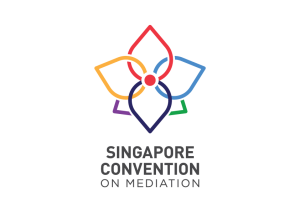The below is an edited transcript of comments made by Mr Aloysius Goh, CEO of Sage Mediation during an interview for the International Mediation Singapore Competition held in November 2020. He shared his views on the importance of defining and raising the standards of mediation practice, and how mediation competitions play a key role in education and the creation of an international community of mediation believers.
Brief Introduction of Sage Mediation
Sage Mediation is a very young mediation service provider founded last year to provide mediation services. At Sage, we run various education programmes, and I deliberately want to use the word “education” instead of “training” because I think these have different meanings.
Setting and Raising the Bar for the Standard of Mediator and Mediation Advocacy Practice
The programmes that we run are “training workshops” so far as they lead to accreditation. I was very clear when I set up Sage that our programmes must be accredited with an independent standards organization and a credible one, so I quickly sought out the Singapore International Mediation Institute (SIMI) because it has clear standards and a good framework to support the progress of SIMI-accredited mediators. For similar reasons, our mediation advocacy programme is accredited with the International Mediation Institute (IMI). IMI has a robust framework for ascertaining the quality of mediation advocates.
I believe that to promote mediation globally, having these two important stakeholders (mediators and mediation advocates) offering high quality service and constantly raising the bar of excellence in their practice is key.
Mediator Education vs Mediator Training
The above said, what Sage is setting out to do is not just training. This is where I like to think that we are a unique learning institution. From my interactions with some of the best mediators in the world, it is very clear that development as a mediator does not end when you are accredited.
Conflicts are changing, and the way we understand conflicts, the way we understand human behavior and organizational behavior is changing. Staying ahead as peacemakers requires us to keep learning. I would like Sage to be dedicated to creating this learning environment.
The development programmes we run, the testing and accreditation that we offer, are only to start that seed, that passion, for mediation practice. Thereafter, we want to continue supporting with different professional development activities and create an active international community to spur that development.
What Has Changed With the Covid-19 Pandemic?
Because of the Covid-19 pandemic, we had to pivot very quickly to run the programmes online. This has grown our international presence much faster than we had anticipated. Within less than a year, we have reached a very diverse international audience with participants from Russia, France, Turkey, the USA, Japan, and Thailand joining our events. These Sage pioneers remain very close to our core team and have been a tremendous blessing.
The Singapore Convention on Mediation
Truth is, I have not seen much change yet as a direct result of the Singapore Convention. I tell mediators, let us not rest on our laurels. It has been ratified by six jurisdictions. That is good. But, this is out of a hundred and sixty or seventy countries. So it means we are only just at the starting point of the journey.
There is still much to do. We need to have a lot more jurisdictions signed on to the Convention. We need more jurisdictions to ratify, and to ratify means that they need to get the domestic legislation in place. We need to get businesses and lawyers accustomed to resolving conflicts amicably through mediation. We also need to come together and agree on what is good mediation conduct.
Again, one of the good things about mediation, but which is double-edged, is the flexibility and the diversity. The way every culture looks at conflict is different, which also means the way we resolve conflicts is different. And, we celebrate this diversity – it is what makes people and human communities unique and beautiful.
But that diversity also makes it challenging when we do international dispute resolution. How do we preserve that diversity and yet create a fairly universal standard of practice? Finding that balance is something which will be a continuing work of mediation standard bodies and of mediation service providers.
We really are just at the starting point.
How Do We Start Building Our Professional Mediation Career?
Find an accreditation programme that matches what you wish to do as a mediator. There are many different training providers with different focus areas. Sage programmes are for international disputes. Other programmes may focus on family disputes and community disputes.
Someone who wants to be a mediator needs to think, “Why am I doing this?”
What I generally discourage (for those seeking accreditation) is, you just want to be a mediator because “it is fun”, or you think “it is good to have that badge”, and “I can use that skill sometime”. It is no doubt fine with me for these individuals to come for the programmes. But, if you really want to practise as a mediator, it is a tough job.
It is not fun sitting between people who are stressed, anxious, and have been unable to resolve their disputes on their own who are now turning to you for help. It is spiritually uplifting when you can help resolve the dispute. But, it is not “fun”, and there are down days when you cannot settle the dispute. If you do not know what motivates you, the training itself will not carry you past those setbacks.
Words of Encouragement for Mediation Competition Participants
I like the International Mediation Singapore Competition (IMSG) because if you do well, you are recognized. You are not competing for that one unique trophy. IMSG has created a scoring system that recognizes excellence and rewards excellence. To do well at the IMSG, I think the organizers have put in a lot of effort to craft fairly complicated scenarios, which means that you need to prepare, and that is true of life. You make that necessary preparation. You will be surprised by how much reward that gives.
Competitors must keep in mind that the competition is an education experience. Whatever result you get, gold, silver or bronze, it is feedback for how you did. You do not need to be overly joyous if you get gold. Certainly, celebrate the good result. But do not be despondent either if you get bronze.
Pay attention to the feedback of the judges. What I hope as a judge and sponsor is to be able to give useful feedback, that the participant gains useful feedback on their conflict management ability and have lots of fun, make lots of friends from overseas even if it is via Zoom. You will never know when you need those friends. More importantly, you will never know when they will need you.



